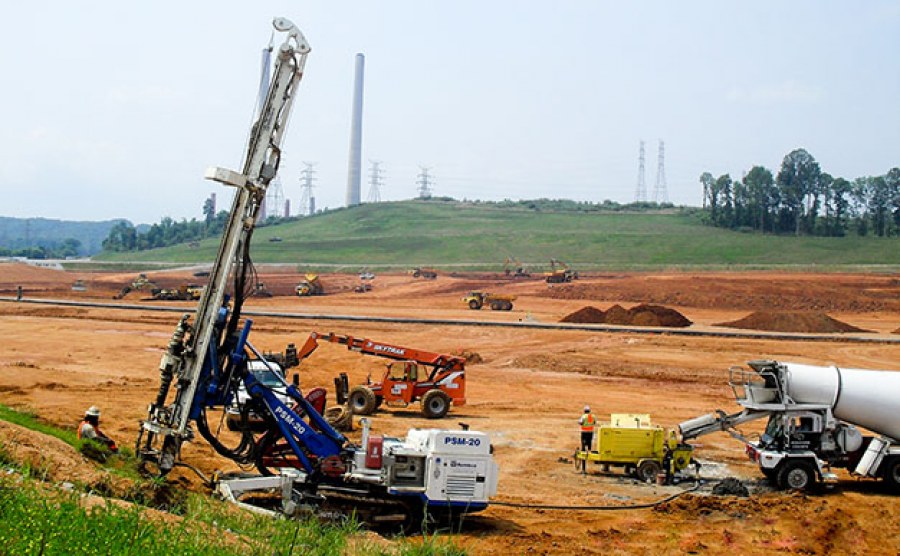From a scientific perspective, geotechnical engineering largely involves defining the soil’s strength and deformation properties. Clay, silt, sand, rock and snow are important materials in geotechnics. Geotechnical engineering includes specialist fields such as soil and rock mechanics, geophysics, hydrogeology and associated disciplines such as geology. Geotechnical engineering and engineering geology are a branch of civil engineering.
The specialism involves using scientific methods and principles of engineering to collect and interpret the physical properties of the ground for use in building and construction. Its practical application, e.g. foundation engineering, has come to require a scientific approach. The term geotechnics is currently used to describe both the theoretical and practical application of the discipline.
NGI and geotechnical consulting
Geotechnics is applied when planning infrastructure such as roads and tunnels as well as buildings and other constructions onshore and offshore. The discipline also involves performing numerical calculations, analysing the stability of slopes and cliffs, and assessing load-bearing capacity, settlement and deformation in man-made structures.
Research and development in geotechnical engineering is carried out to improve and further refine equipment and methods for carrying out ground surveys,
· equipment and methods for surveying and testing sediment and rock samples in a laboratory,
· methods for calculating and analysing the behaviour and bearing capacity of soil and rock when planning structures (buildings, bridges, dams etc.), offshore installations, tunnels and subterranean spaces, roads, railways etc.,
· methods for measuring, instrumenting and subsequently documenting whether buildings and other structures behave the way they were designed to.
NGI and geotechnical research and development
NGI conducts research and development in all of the fields mentioned above. NGI receives an annual grant for this research from the Research Council of Norway. NGI’s geotechnical expertise is used to assist both the authorities and private enterprise in the following markets:
· Offshore energy
· Natural hazards
· Building, construction and transport
· Environmental technology

Geotechnical engineering is a practice that relates to the engineering behaviour of the earth and its materials. As a branch of civil engineering it is of great importance to construction activities taking place on the surface or within the ground, as well as to mining, coastal, drilling and other disciplines.
Despite having considerable overlap, geotechnical engineering differs from engineering geology in that it is a specialty of engineering, whereas the latter is a specialty of geology.
Geotechnical engineers are responsible for evaluating subsurface and soil conditions and materials, using the principles of soil and rock mechanics. They are commonly appointed as consultants on construction projects. Engineers also examine environmental issues such as flood plains and water tables. By doing so, they are able to determine whether a particular site is suitable for a proposed project, and can inform the engineering design process with regard to how ground conditions can be made safe and effective for construction.
From geotechnical surveys, engineers will be able to evaluate the stability of the ground, including any slopes and soil deposits, assess any risks and/or contamination, and help to determine the types of foundations and earthworks that will be required. The potential for hazards such as landslides, earthquakes and other seismic activity can also be assessed.
Geotechnical engineers can be involved in ‘ground improvement’, in which soil is treated through a variety of different techniques to improve strength, stiffness, and/or permeability.
Geotechnical engineering is also important in coastal and ocean engineering, in relation to building wharves, jetties, marinas and coastal defences, as well as foundation and anchor systems for offshore structures such as oil rig platforms. Engineers may also work on embankments, tunnels, channels, reservoirs, irrigation systems, and so on.


